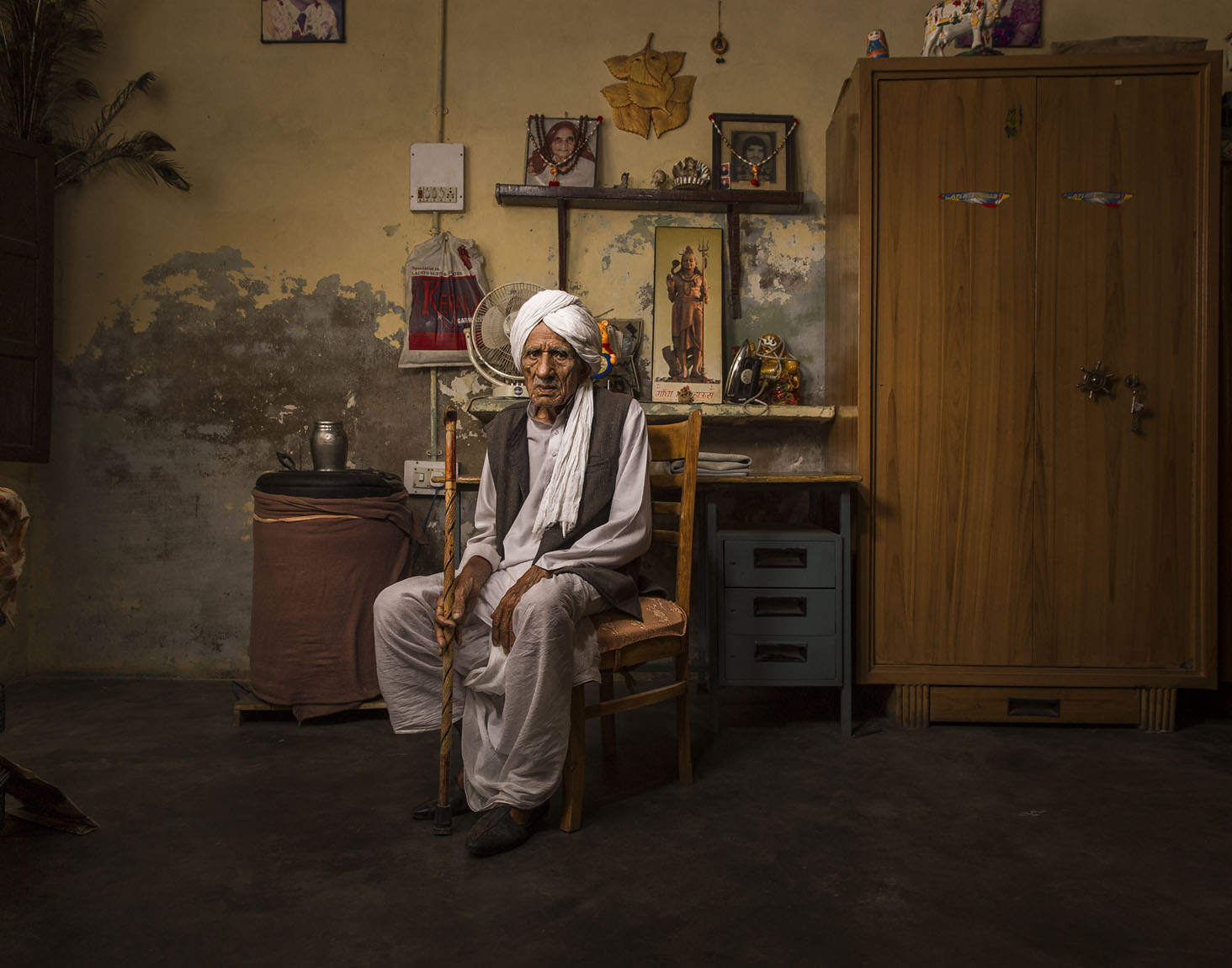My name is Nathu Singh, and I was born on December 13th, 1922 in the village of Ujwa, India. My country didn't have a good education system under British rule, so I never went to school. I spent my formative years on my families' farm.
When I was 18, both of my parents passed. At that time I felt there was no more purpose in my life, as I was the only son. Listless, I joined the Army on November 25th, 1941 in Delhi. I was sent to Meerut for basic training, where I was assigned to the motor company. The British trained us with their state of the art artillery and their rifles, ray guns and tommy guns. I also learned proper driving techniques on the GMC and Chevrolet vehicles they equipped us with.
I trained for three and a half months in Meerut. Upon graduation in early 1942, the regiment was given 14 days leave, and were then deployed to Jhansi, India to engage in combat. From that point, my platoon was consistently on the move. We went from Jhansi, all around Madhya Pradesh, to Ranchi, then finally Nagaland in Northeast India by the Burmese border.
During the war, us Indians were considered the lowest rung of the Allied Forces. The Americans had their own commanding officers but our command was British. Our commanding officers were respectful to us, but we always stayed in separate camps from the British Army.
I remember a few nights into our stay in Nagaland, I was standing in the road with my car. This was about 10PM. I saw two Japanese soldiers in our territory! I radioed my commanding officer, and he ordered us to move towards Burma.
We crossed two rivers on the way. One was the Irawati River, and the name of the other has slipped my mind. What I do recall is crossing both rivers on boats, and being in continuous combat with the Japanese! We traversed the rivers, then a hill-filled commute from Nagaland to Burma, all the while fighting the Japanese. They put up a fight, but they were in our country and we outlasted them. Not only were we giving them trouble on ground, the Indian Air Force was attacking them from above.
I was a motor mechanic, so my main job was to salvage vehicles and transport tanks from base to base. I didn't take part in much combat, but I could tell it was taking a toll on my Infantry.
The Japanese had hundreds of casualties, but we didn't care. It was the nature of the war. We were on our way to Burma, and fought them until we reached Rangoon, where I stayed for two years. Many other soldiers in my regiment moved towards the border, but I stayed there. My primary objective in Rangoon was to unload ammunition and supplies from the ships the Navy pulled into the port.
Not only were we dealing with Japanese soldiers, some of our own had turned against us. The Indian National Army (INA), led by Subhas Chandra Bose, was fighting for the Independence of India at the same time. The Japanese wanted Bose to fight alongside them, but he wanted the INA to be its own entity. I think he believed that the British would leave us alone eventually but if Japanese would invade India, Japan would forever control our country. We soon heard that a Major in the INA, I think it was Mohan Singh exposed that their army had no ammunition, and could not withstand a serious attack so no one was taking them seriously. But Subhas Chandra Bose had great intentions and he was a good leader that eventually helped India gain its independence from the Britishers.
I heard a story once that the Bengali government sent ten girls to infiltrate Subhas Chandra Bose's inner circle in Burma, to ultimately kill him. Those ten girls were told whoever could murder him would become the governor of West Bengal. One girl somehow managed to reach a higher status than the others, and his bodyguards surmised that she was a potential spy. She was confronted, and the underlings found a gun in her property.
When she was put in front of Subhas Chandra Bose, he apparently gave her mercy. He asked her where her allegiances were, whether she wanted to have an independent country or merely be the governor of a country under British rule. Subhas Chandra Bose was so convincing that she and the other nine women joined the INA. He was a charismatic leader of their Army.
In mid-August 1946, we found out the war had ended a couple days earlier, as two bombs had hit Hiroshima and Nagasaki and Japan surrendered. When we heard that, we had a huge celebration. And on December 14th, 1946, I retired from the Army. I had served five years, and felt I had done enough to serve my country. I was the only child, so I had the entire family farm to myself. I came back to my wife in early 1947 and started my own agricultural business. I received a job offer from the Indian government, but I declined it. I felt I had reached my allotment of government service for one lifetime.
Today, I don't do much. I roam around my village and my family takes care of me. I'm around family, friends and neighbors, and I enjoy my life.
